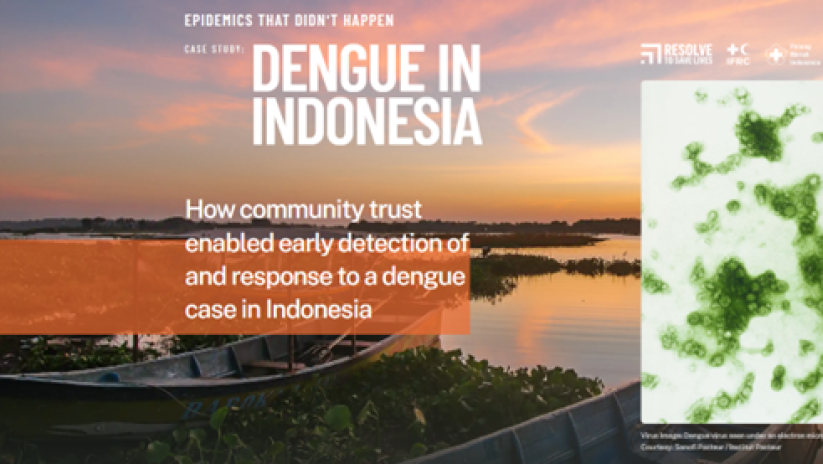
In the report, the Indonesian Red Cross shares an example of early detection and response to dengue. On December 5, 2021, after a suspected case of dengue fever was reported in Sobokerto, Indonesia, Red Cross volunteers trained in community-based surveillance through the Community Epidemic and Pandemic Preparedness Programme (CP3) were able to confirm the preliminary diagnosis thanks to the community case definition of dengue fever. The case was then reported to the village midwife and the district supervisor with the use of mobile-based data collection tool. Volunteers were able in a very short time to launch risk communication and community engagement activities to reduce the risk of further infections. To raise awareness and educate on dengue prevention, they went from door-to-door to alert families of the potential dengue case in the village. Most local families knew how to clean their bathrooms to prevent mosquito infestation.
However, families were less aware of other threats of mosquito breeding and did not see open sewage systems, unclean water storage units, open-air waste disposal areas and even bamboo groves - popular play areas for children - as a threat. Therefore, volunteers mapped out the community’s environmental risk by identifying potential breeding sites and worked with the community to eradicate those areas. Red Cross volunteers were well-placed to communicate with local families about disease risks and how to manage them because, unlike an outside health authority that might visit during an outbreak, they were known and trusted by the people in the communities in which they lived and served.
To read the full case study click here.
To read about some of the other case studies from “Epidemics that didn’t Happen” click here.
The PMI case study was also featured in the Community Epidemic and Pandemic Preparedness Newsletter which you can access here (February 2023).



